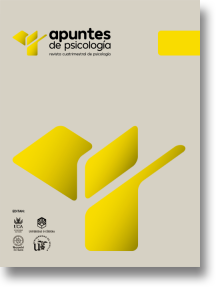Personality as a behavioral dynamic structure defined by the author-actor conjugation
DOI:
https://doi.org/10.55414/7mp2h952Keywords:
Personality, radical behaviourism, ontological behaviourism, discrimination, generalization, contingency, equivalence relations, suggestionAbstract
Based on Fuentes' consideration that animal behaviour is ontologically different from human behaviour, we proceed to make a specifically anthropological analysis of personality, using equivalence relations with other people as the defining framework. According to this defining framework typical of historical societies, a person is characterized by the resolution of conflicts arisen from social life, proposing life forms with collective ethical and moral value, that is, as an author. But when social conflicts objectively cannot be resolved in a collective way, the person has to discriminate-generalize the contingencies or normative alternatives which are most convenient depending on whom he/she is relating to, playing the corresponding role or character, as an actor. Personality would, therefore, be a group of behaviours in which the person's activity as an author and as an actor are dynamically combined.
Downloads
References
.
Downloads
Published
Issue
Section
License
Copyright (c) 2022 APUNTES DE PSICOLOGÍA

This work is licensed under a Creative Commons Attribution-NonCommercial-NoDerivatives 4.0 International License.


















